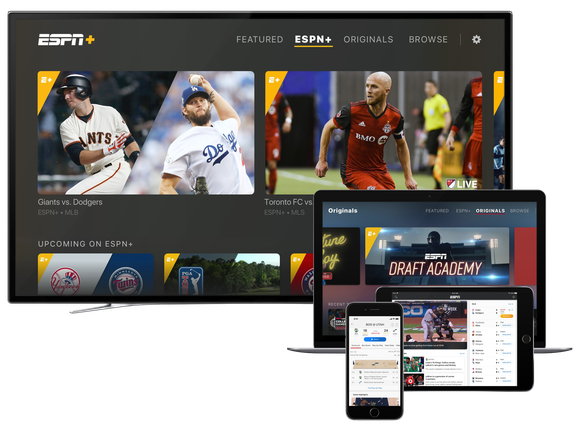Disney Just Gave Google a Big Advertising Win
Disney (NYSE: DIS) is abandoning Comcast's (NASDAQ: CMCSA) FreeWheel ad platform for its online video streaming properties. Instead, it's exclusively working with Alphabet's (NASDAQ: GOOG) (NASDAQ: GOOGL) Google, which is becoming increasingly prevalent in the world of online television advertising.
As more and more people watch their favorite TV shows online instead of through traditional broadcasts, it opens the door for better advertising sales solutions. Digitally native solutions have an edge over traditional sales teams from networks and distributors in that they may require less time for both salespeople and ad buyers while producing better results for both.
That's why Comcast acquired FreeWheel in 2014 to handle digital advertising on its own properties and to win a bunch of new clients in the world of streaming television, including Disney and Fox. Meanwhile, Google developed new tools on its DoubleClick platform to take advantage of the growing popularity of online video.
Google has made excellent progress penetrating the market, signing contracts with CBS, A&E Networks, and AMC Networks to use what it now calls Google Ad Manager. The Disney deal makes it an even bigger force in the market.

Image source: ESPN.
What Google just won
Disney agreed to use Google Ad Manager to handle its digital advertising for Disney, ABC, ESPN, Freeform, Marvel, Pixar, and Star Wars. Notably, Hulu (and its $1 billion-plus in ad revenue) will stay with Hulu's homegrown ad platform.
Overall, the deal could be worth tens of millions of dollars in revenue annually for Google, according to an industry executive. Honestly, that's not going to be a huge driver for the company that brought in $29 billion in advertising revenue last quarter.
What Disney gives Google, however, is a stronghold in a fast-growing market. Disney is aggressively pursuing over-the-top and direct-to-consumer video streaming options. It bought a majority stake in BAMTech to support the back-end streaming technology needed to ensure pixels get delivered smoothly to consumers' devices. It's already launched one direct-to-consumer video service (ESPN+), will soon take majority ownership of another (Hulu), and will launch a third in about a year from now (Disney+). That's on top of supporting video apps and websites for its growing portfolio of television networks.
Disney will work with Google to develop new ad products. It will also provide ample testing grounds for those products to prove their viability in the market. Google can then take its learnings from Disney and sell its services to other media companies. That's a virtuous cycle that could be much more valuable than any of the revenue it generates directly from its deal with Disney.
What is Disney getting out of it?
While the deal is great news for Google, Disney isn't just giving Google its business out of the kindness of its heart.
First and foremost, Disney is able to streamline its operations by using just one ad platform for nearly all its digital properties. Instead of trying to aggregate data across Comcast's FreeWheel and Google Ad Manager, Disney and the companies advertising on its properties can more easily get a clearer picture of their results. That should enable better ad targeting across Disney's various properties and better measurement to prove ad efficacy. The end result of all that is more revenue per ad impression for Disney (and Google).
Disney also gains the advantage of working more closely with one of the leaders in digital advertising to develop new ad products and improve the experience for both ad buyers and viewers. A better ad experience makes it more likely that a consumer will keep coming back for more content.
Disney's endorsement of Google to be its sole digital ad platform bodes well for Google's ability to take a big piece of the rapidly growing market. But it's also a smart move on Disney's part to maximize the value of its expanding portfolio of video streaming apps and websites.
More From The Motley Fool
Suzanne Frey, an executive at Alphabet, is a member of The Motley Fool's board of directors. Adam Levy owns shares of Alphabet (C shares). The Motley Fool owns shares of and recommends Alphabet (A shares), Alphabet (C shares), and Walt Disney. The Motley Fool recommends AMC Networks and Comcast. The Motley Fool has a disclosure policy.

 Yahoo Finance
Yahoo Finance 